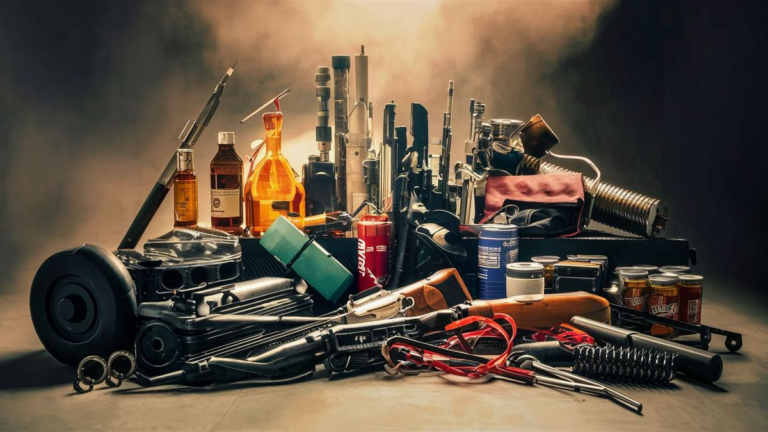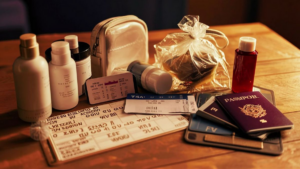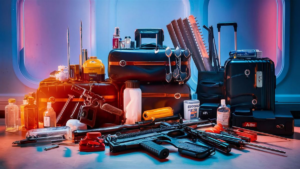When preparing for air travel, it’s crucial to be aware of what items are not allowed on a plane. Airlines and aviation authorities enforce strict regulations to ensure the safety and security of passengers, crew, and the aircraft itself. Understanding these restrictions can help travelers avoid delays, confiscations, and potential fines.
Prohibited Items
Prohibited items typically fall into several categories, including:
- Weapons and firearms
- Explosives and flammable materials
- Liquids, gels, and aerosols
- Sharp objects
- Batteries and power banks
- Chemicals and toxic substances
Weapons and Firearms
Weapons and firearms are strictly prohibited on commercial flights. This includes firearms, ammunition, knives, swords, and martial arts weapons. These items are considered dangerous and pose a significant security risk.
Explosives and Flammable Materials
Explosives, flammable liquids, and gases are not allowed in carry-on or checked baggage. This category includes fireworks, flares, gasoline, propane tanks, and lighter fluid. Such items are highly volatile and could cause catastrophic accidents if mishandled.
Liquids, Gels, and Aerosols
Airport security imposes restrictions on liquids, gels, and aerosols in carry-on baggage. These items must be stored in containers of 100 milliliters (3.4 ounces) or less and placed in a clear, resealable plastic bag. Common examples include shampoo, lotion, perfume, and beverages.
Sharp Objects
Sharp objects such as scissors, razors, box cutters, and knitting needles are prohibited in carry-on luggage. While some of these items may be permitted in checked baggage, it’s essential to check with the airline beforehand.
Batteries and Power Banks
Batteries and power banks with a high energy density are subject to restrictions due to the risk of fire. Passengers are advised to carry these items in their carry-on baggage and follow specific guidelines outlined by airlines and regulatory agencies.
Chemicals and Toxic Substances
Chemicals, corrosives, and toxic substances are strictly prohibited on aircraft. This includes bleach, chlorine, tear gas, and radioactive materials. Any items that could pose a threat to the health and safety of passengers and crew are not permitted.
Additional Considerations
In addition to the items mentioned above, passengers should also be aware of other restrictions and guidelines:
- Restricted items may vary depending on the airline and destination.
- Some items may be allowed in checked baggage but not in carry-on luggage.
- Certain items may require special authorization or documentation.
- Passengers should always check with their airline or relevant authorities for the most up-to-date information.
Being familiar with what items are not allowed on a plane is essential for all air travelers. By adhering to these regulations, passengers can help ensure a safe and smooth journey for themselves and their fellow travelers. Remember to always check with your airline or relevant authorities before packing to avoid any inconvenience or delays.
curity Screening Process
Understanding the security screening process at airports is vital for travelers to navigate efficiently. Security procedures typically involve X-ray scanning of baggage, metal detectors for passengers, and sometimes additional screenings for certain items or individuals.
Baggage Screening
Baggage screening involves X-ray scanning of both carry-on and checked baggage to detect any prohibited items. Passengers should pack their belongings in an organized manner to facilitate the screening process and minimize the likelihood of delays.
Passenger Screening
Passenger screening typically involves walking through a metal detector while removing any metal objects from pockets or clothing. In some cases, passengers may be subject to additional screening measures such as pat-downs or handheld metal detectors.
Frequently Asked Questions
Here are some common questions regarding prohibited items on planes:
| Question | Answer |
|---|---|
| Can I bring a pocket knife in my checked baggage? | It depends on the airline and specific regulations. Some airlines may allow certain types of knives in checked baggage if properly secured. |
| Are electronic devices allowed in carry-on luggage? | Yes, electronic devices such as laptops and smartphones are generally allowed in carry-on luggage, but they may be subject to additional screening. |
| Can I bring medication in my carry-on baggage? | Yes, passengers are usually allowed to bring necessary medications in their carry-on baggage. However, it’s advisable to carry them in their original packaging and declare them during security screening. |
Additional Resources
For further information on prohibited items and security regulations, passengers can refer to the official websites of airlines, airports, and relevant regulatory agencies.
See also:






